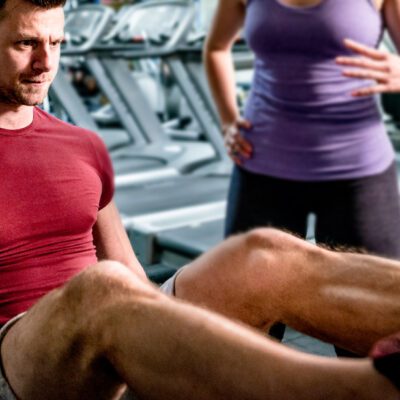Cardio machines like the treadmill, rowing, elliptical and stationary cycling are convenient and practical tools to enhance cardiovascular strength and endurance. You set the duration and intensity, and off you go. But they are not the only machines to get your heart rate up and work up a sweat. You are an effective cardiovascular machine. Bodyweight cardio is a fantastic alternative to traditional machine-based cardio when you don’t have access to a gym or are looking for new methods to improve your cardio.
Here we’ll get into the benefits of bodyweight cardio training and five bodyweight cardio exercises to get you sweating and smiling.
Why smiling? Because bodyweight training can be fun, maybe.
3 Benefits Of Bodyweight Cardio
One vital benefit overlooked in a rush to get to the rowing machine is that bodyweight cardio training will simultaneously improve cardiovascular endurance and muscular strength. You’ll improve your relative strength, which is what you can lift in compassion to your body weight. Here are a few other significant benefits of including bodyweight cardio in your routine.
- Better Recovery Between Strength Training Workouts: When you improve your aerobic system, you improve the body’s effectiveness of clearing away the waste products of exercise for enhanced recovery. Plus, the extra blood flow to your muscles helps heal the damage caused by resistance training.
- Reduced Heart Disease Risk: Regular cardio reduces heart disease risk factors like high blood pressure and high cholesterol by lowering LDL (bad cholesterol) and increasing HDL (good cholesterol).
- Increased Work Capacity: Improving your cardiovascular system through regular cardio boosts your aerobic system as it becomes more efficient. It improves your ability to do more work in the gym or the sporting field because of the improved efficiency of your cardio-respiratory system.
Programming Suggestions
The two main types of cardio are high-intensity and steady-state cardio. There are a few subtypes, but let’s stick to these. HIIT (High-Intensity Interval Training) is short, sweet, intense, and steady state is longer and less intense HIIT is thought to be better for fat loss than steady-state training, but both have been proven equally effective. With both being good for health and fat loss, choose on time and preference.
For steady state training, use the five exercises above for 30 seconds of work and 30 seconds of rest for one or two 10-minute blocks. Four rounds should have you feeling the burn.
For HIIT purposes, pick one exercise above and use the following work rest periods and repeat for six to eight rounds. Or you could pick three exercises below and choose the time and the reps and keep the reps the same as the time.
An example would be 10 minutes (and as many rounds as possible) of:
1A. High Knee Skips 10 reps on both sides.
1B. Bear Crawl 10 steps forwards and backward.
1C. Ice skaters 10 reps on both sides.




